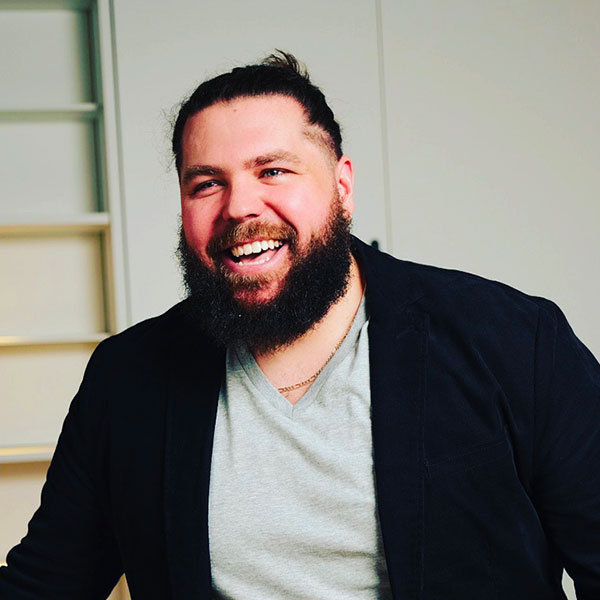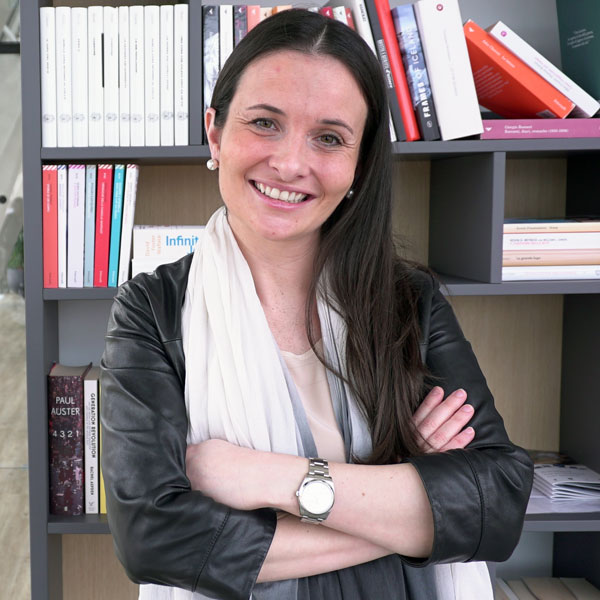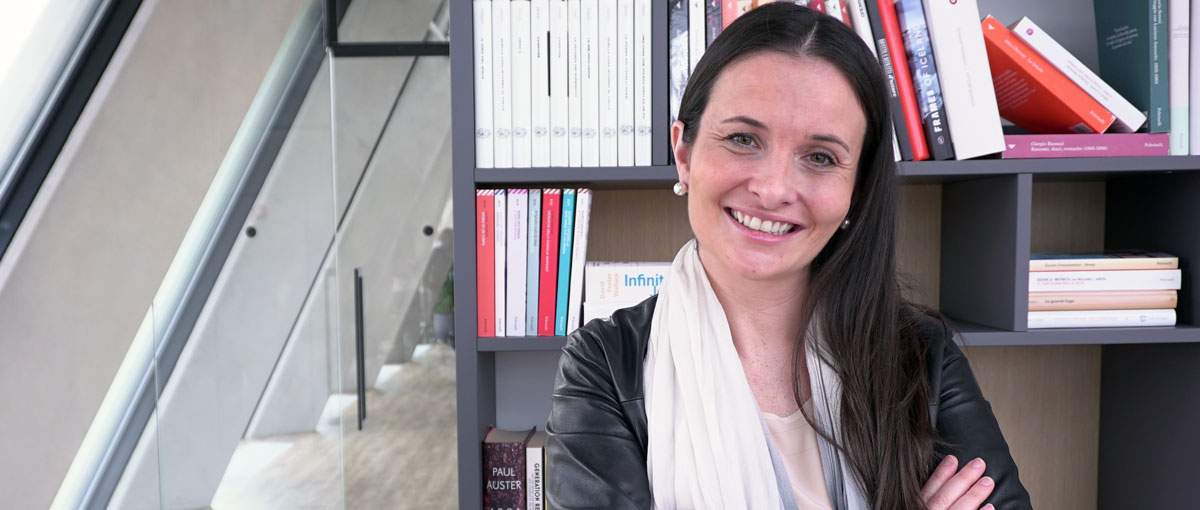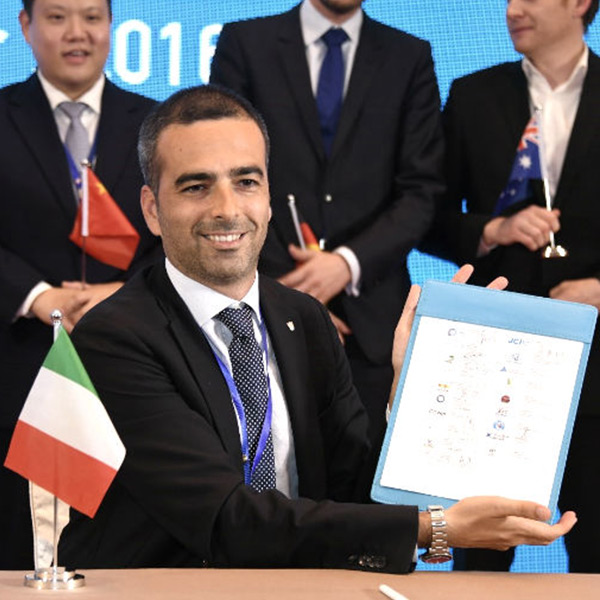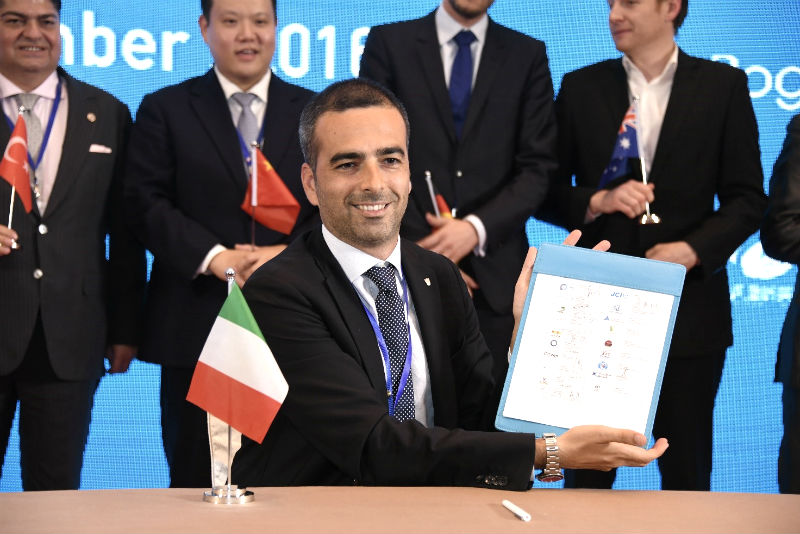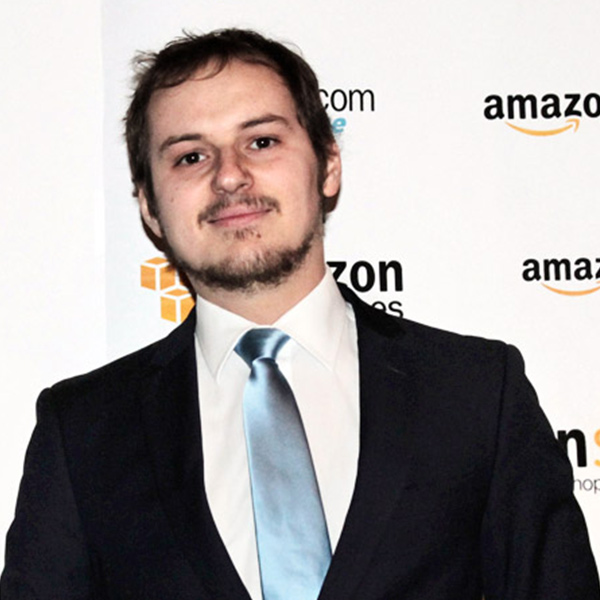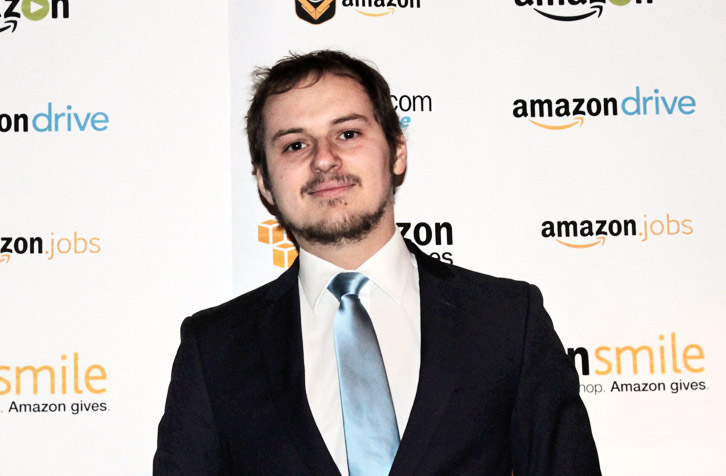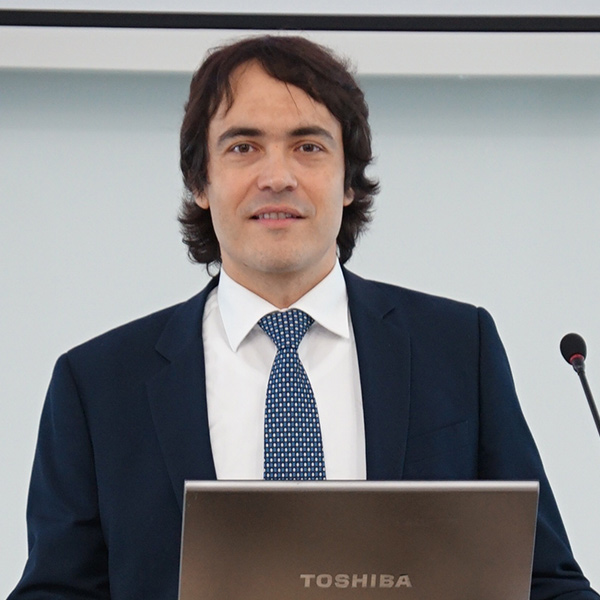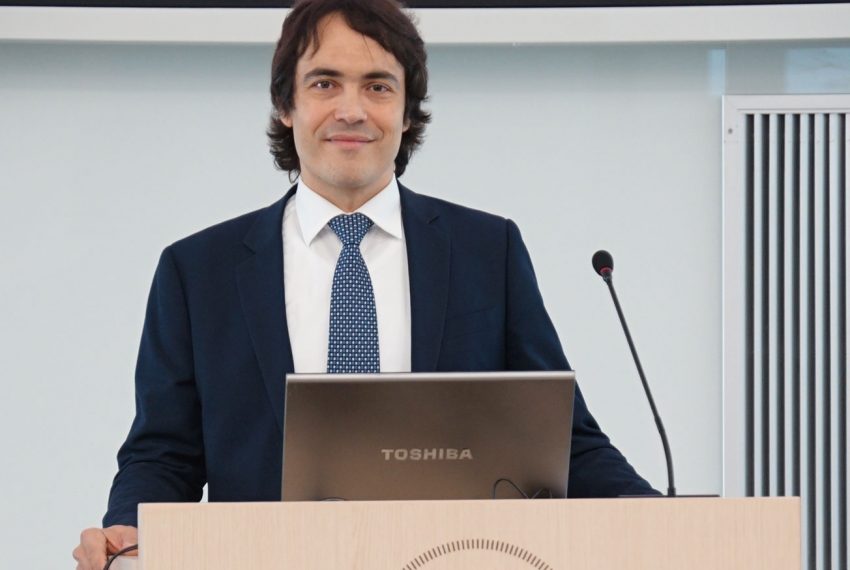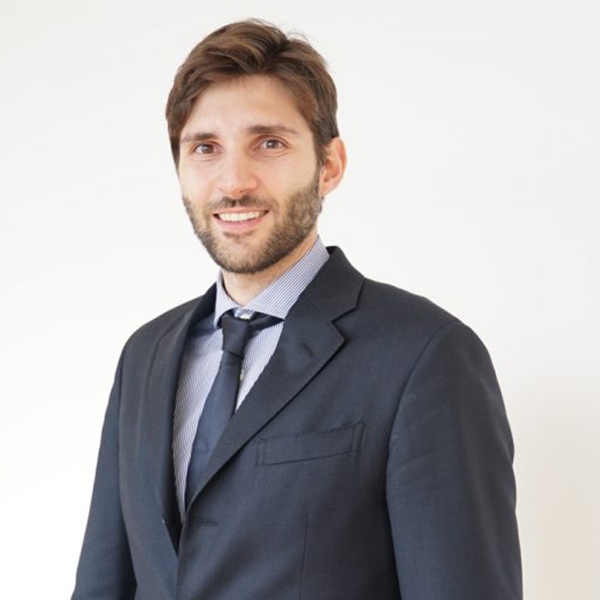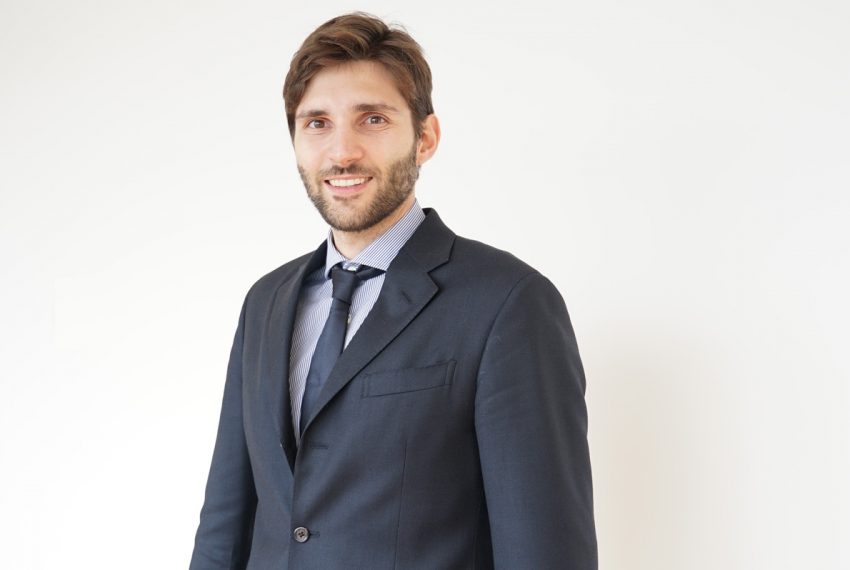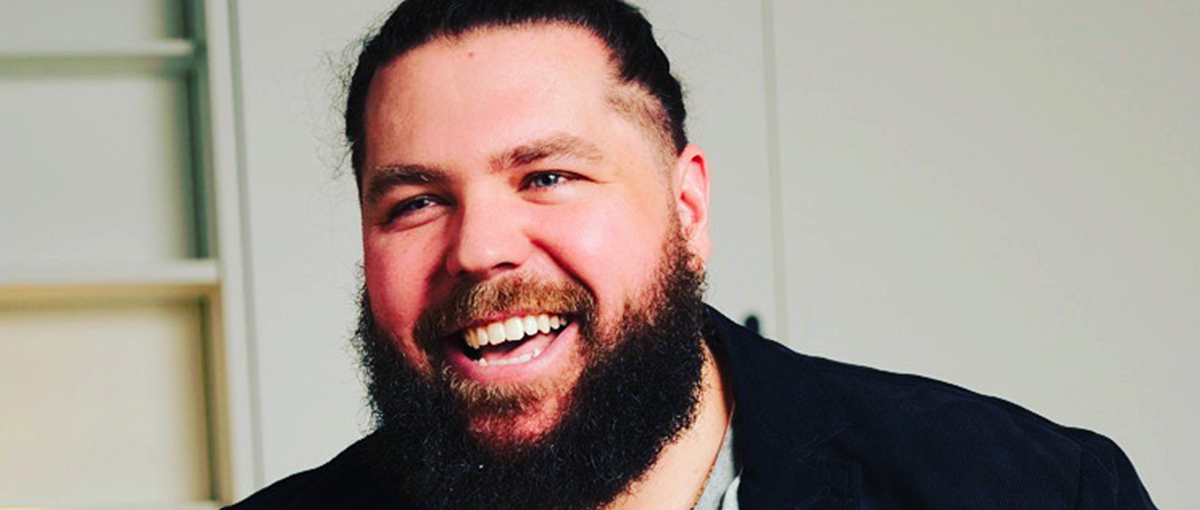
We are delighted to catch up with New-York-based MIP Ambassador and entrepreneur, Rob Napoli, a “burst of energy” who is one of our most proactive alumni, remaining closely involved with the School. Rob was awarded the Master in Marketing Management, IM4, in 2016, and has gone on to have many successes in his chosen field. Here, he recounts his story, shares his current thinking, and based on his experience, provides some good advice to potential students.
Please could you give us a brief outline of your background and tell us what has brought you to where you are now?
My career started out in recruitment in the Midwest before I met my now wife in small-town Iowa. Shortly into dating, she mentioned she was going to move to Europe to get her master’s degree and asked me to follow her or break up… So I followed her to Milan, Italy, where I got my Master at MIP and while in Milan, I also coached professional American football and was Head of Content and Brand for a Polimi-based startup. I helped that startup scale and went to New York City as part of an accelerator program before transitioning into a large global corporation, where I was in charge of recruiting marketing professionals. In 2019, I got fired for the first time in my life, not for performance, but for passion. This is when I started two companies, Hapday Group which is/was a US go-to-market entry company helping companies enter the US market with sales-as-a-service. We grew this company almost 100% Year-over-Year and were acquired in February 2021 by Move Ventures, where I have stayed on as a Board Member. I currently run Rise Up Coaching (soon to be rebranded as Rise Up Media), where I create and lead training and development programs for startups, scaleups, and corporates.
What would you say are the specific influences of your IM4 course, and your time at MIP in general, on your life and work today?
It was my time at MIP where I realized that my career passion started. When I came to MIP I thought I wanted to work in Big Data Marketing for large corporates, but during my time in Milan, I fell in love with the idea of entrepreneurship and startups and chose to work for a small Polimi Hub-launched startup and turned down an internship to work at Nielsen on the Mars brand in Belgium.
It was my time in Milan that really motivated me to be more involved in the startup ecosystem vs the traditional corporates. Because of this realization, I have had many stops along my journey. I went to New York City to go through a global accelerator, where I pitched to a number of Investors, Angels, and VCs and won a number of pitch companies. I wanted to prove that I could make it in a global corporate, so I went into a corporate environment for 18 months where I built a new line of business and was promoted. I confirmed what I had realized in Milan… I wanted to work in startups. I stayed in touch with MIP and have been able to give guest lectures and talks, as well as stayed on as an IM4 Ambassador; it has been amazing to remain involved in the ecosystem. In fact, because I am an alumnus of MIP and Polimi, I have made a number of connections and even closed clients who are alumni. This has led me to work with organizations and partnerships such as the Italian Trade Agency in NYC.
You are incredibly active on social media, with your work, podcasts and you have even found time to write a book! Is this spontaneous activity or do you spend a lot of time planning? Do you find the time management and decision-making processes easy?
I have clinically diagnosed ADHD and undiagnosed low-grade OCD, so it is equal parts spontaneous and process. If I am too spontaneous, I have great ideas and poor execution, while if I try to put in too much process, then I get lost in the details with OCD and end up trying to perfect everything vs getting good out. For me, the goal is time-blocking ̶ my calendar is my NUMBER 1 Communication Tool: if it is not on my cal, it doesn’t happen. So what I do is time-block out tasks and activities on my calendar and once that block is done, I move on to the next thing.
In which direction do you see yourself ̶ and your areas of interest ̶ heading in the future?
I want to continue to develop Rise Up Coaching to media services and create a space and a place for more content like a Rise Up Podcast network, as well as launch my own line of branded courses on entrepreneurship and brand.
Sometimes what I want to build feels overwhelming and daunting, while on other days there is full clarity. It is an ongoing process. We are told that during our time at University and if we go through a master’s degree, we should know what we want to do and how to do it. I can see what I am building go a number of ways, and I also want to demystify this idea that we have to have life figured out. Life is an ongoing process and as we age, we grow, so I want to embody that and show that you can have a non-linear career path and still make great things happen. I live by the idea of ‘staying curious’ because when you are curious, you learn, and when you learn, you build.
With reference to both your LinkedIn profile and the title of your recent book, what does the concept of “soul” signify to you?
I talk about the “Social Soul” in the light of who we are online; we need to be our real selves, as that is how real, authentic relationships are formed. And to do this, we need to show our souls online: this is us, who we are, the good, the bad (the tough lessons we learn), and everything in between.
What advice would you give today to anybody considering studying marketing at MIP?
Build a value-added network early! Connect and build relationships with your classmates, other students at MIP, the professors, guest lecturers, etc. And start connecting and following industry leaders that you can learn from. Building a network early will open up so many opportunities, as well as enabling you to be at the forefront of innovative marketing strategies.
